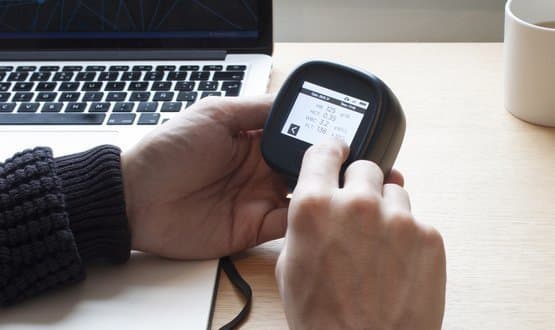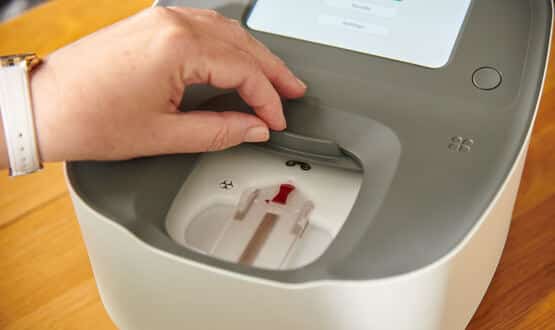Entia receives £1 million to develop take-home blood testing kit

They’ve only been around for two years but this healthtech start-up has already secured £1.14 million in funding to develop a hand-held blood testing kit for chemotherapy patients.
The home blood cell count analyser promises to help cut wasted hospital visits for patients who aren’t ready for chemotherapy treatment.
Entia, based in Highbury, North London, were awarded the Early-Stage Biomedical Catalyst grant from government tech investment agency Innovate UK, allowing for the accelerated development of their home monitoring solution for cancer sufferers.
The grant will allow them to work closely with one of the world’s leading cancer care centres, The Royal Marsden Hospital NHS Foundation Trust, on developing the Affinity monitor.
Chief operating officer and co-founder of the start-up Millie Clive-Smith said the take-home kit, Affinity, enables chemotherapy patients to tailor their treatment to their specific needs.
“It helps reduce chemotherapy cancellation appointments and limit hospital visits just for blood count checks, allowing for more chemotherapy slots for other people awaiting urgent treatment”, Clive-Smith said.
Normally patients turn up to the hospital and take a blood test before undergoing treatment. But in 20% of cases they were being sent home because their blood counts were too low, according to Entia CEO and co-founder Toby Basey-Fisher.
“Our system is able to provide an accurate indication before they leave home that they are not ready to receive chemotherapy treatment. They can then reschedule and the appointment can be allocated to somebody else”, Basey-Fisher said.
While it will still be another two years before the system is fully operational and implemented, the collaboration has already won the AXA PPP Health Tech & You Challenge awards.
Marsden Hospital’s consultant oncologist Susana Banerjee said it could help reduce chemotherapy consultations and free up vital chemotherapy slots for patients awaiting urgent treatments.
“Having more planned delivery of chemotherapy and knowing if a patient is going to be delayed because of the full blood count, we can optimise the delivery of our services”, Banerjee said.
“So, there will be reduced waits for treatments and reduced unnecessary consultations checking for blood counts; this can only improve the service and patient experience overall.”
Patient Susan Goodwin finds the current situation frustrating. “I come in for a Friday clinic and I have been delayed by my bloods and have to come in on a Monday, so you have a whole weekend wondering what you blood is doing and so you feel very helpless”, Goodwin said.
The project allows Entia to validate its miniaturised optical technology through laboratory and user testing and generate cost-effectiveness data to support the case for commercial adoption.
Entia is also expected to release Aptus, a handheld blood cell analyser for anemia sufferers at the end of this year.





1 Comments
Yes! Finally something about fotballdrakter.
real madrid drakt barn
Comments are closed.